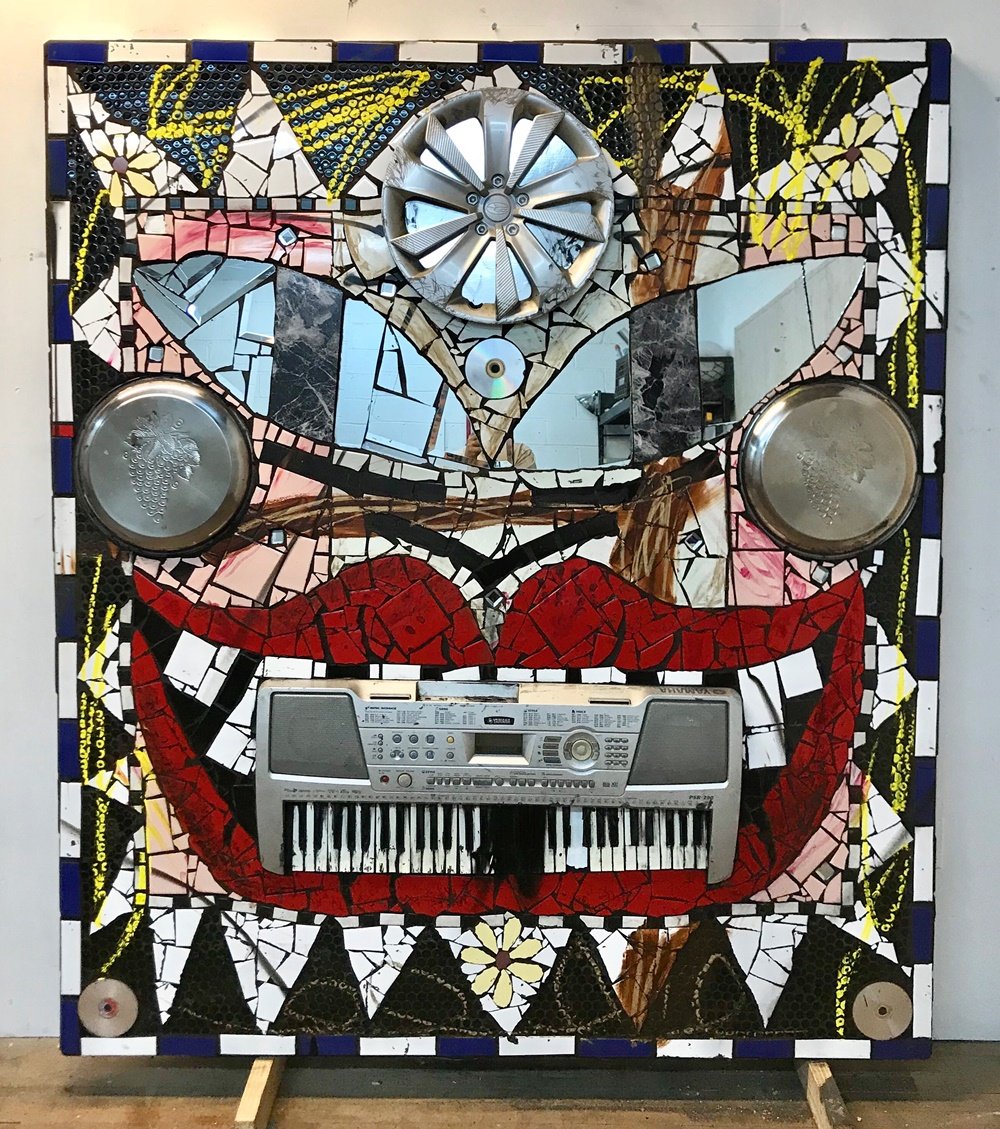
© 2018 Cameron Welch
It’s no secret that the market for work by African American artists has expanded dramatically in recent years. Indeed, 25 percent of the entire $2.2 billion total spent on work by African American artists at auction over the past decade was realized in the first six months of 2018, according to our recent research.
Now, Phillips is looking to meet that rising demand with an exhibition of work by African American artists titled “American African American,” which opens at its New York headquarters on January 10 (through February 8). The show is a sequel to an earlier exhibition of the same name held in London in 2017, shortly after the closure of the Tate exhibition “Soul of a Nation: Art in the Age of Black Power,” which is currently on view at the Brooklyn Museum.
Betye Saar, Domestic Life (2007). Courtesy of the artist and Roberts Projects, Los Angeles, California.
This time around, the exhibition’s curator Arnold Lehman has more than doubled the number of artists included, to 64 from 26 in the London show. The new version spans a much longer time period, from 1950 to the present, and includes artists from a variety of generations, from 20th century pioneer Romare Bearden to 27-year-old Cameron Welch.
“I decided to really go for broke,” Lehman, who serves as a senior advisor to Phillips, told artnet News. “One of the things I learned with the London show was that I needed to have more of a context.” Starting further back in the timeline “will give people a better idea of the postwar history of African American art,” he said.
Prices range from under $10,000 to several million dollars for a work by Jean-Michel Basquiat. (The artist is a market-dominating force: In our recent analysis of auction sales of work by African American artists over the past decade, we found that his work accounted for $1.7 billion of the $2.2 billion total spend—a staggering 77 percent.) Also included in the Phillips show are works by Harlem Renaissance painter Charles Alston, sculptor Fred Wilson, LA-based assemblage pioneers John Outerbridge and Betye Saar, and painter Kehinde Wiley.
Radcliffe Bailey, Madagascar 1 (2016). © Radcliffe Bailey. Courtesy of the artist and Jack Shainman Gallery, New York.
Lehman, who served as director of the Brooklyn Museum from 1997 until 2015, sourced the majority of the work from private collections and galleries across the US. He also looked at previous exhibition catalogues of shows at the Studio Museum in Harlem and the Brooklyn Museum, visited younger artists in their studios, and did a thorough scan of the art-fair circuit “to see if I might have missed someone,” he says.
He found some last-minute additions at Art Basel Miami Beach last month, including the late self-taught artist Purvis Young, who was “everywhere you looked” in Miami, including at the Rubell Collection, and Tyree Guyton, a Detroit-based painter whose work was on view at Martos Gallery’s stand at the NADA fair. In 1986, Guyton founded the Heidelberg Project, an activist art project to rejuvenate an east side Detroit neighborhood.
One prominent name that will not be featured in the upcoming show? Kerry James Marshall. “There are a couple of artists who are not included for good reason,” Lehman said. Not by choice, mind you: “I don’t think there is anyone who owns a Kerry James Marshall who is willing to sell” at the moment, he explained.
As part of the exhibition, Phillips will host a panel discussion on January 14 with Brooklyn Museum curator Ashley James, critic, historian, and artist Deborah Willis, and Metropolitan Museum of Art education chair Sandra Jackson Dumont.